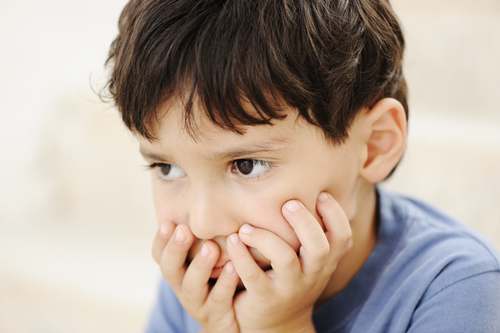Autism Care Can Top $2 Million Per Person

The cost of supporting a person with autism over that individual's lifetime can be as high as $2.4 million, a new study estimates.
The researchers reviewed previous studies conducted in the United States and the United Kingdom to estimate the financial cost of caring for people with autism, including the cost of special education, medical services and housing for adults with the condition. The estimate also includes the lost productivity of parents who must work fewer hours at their job to care for their children with autism.
The highest costs — $2.4 million in the United States and $2.2 million in the United Kingdom — were seen in people with autism who also have an intellectual disability (below-average IQ and a lack of skills that are required for everyday living). For people without an intellectual disability, the lifetime cost was about $1.4 million in both countries. In their calculations, the researchers assumed that people with autism lived to be 67 years old and that 40 to 60 percent had an intellectual disability. [Beyond Vaccines: 5 Things that Might Really Cause Autism]
The biggest contributors to the cost of care for children were special education, which can cost more than $62,900 per year for U.S. children under 5, and the lost productivity of their parents, which was about $18,700 per year in the United States. A 2012 study found that mothers of children with autism work, on average, seven hours less per week than mothers of children without the condition.
The biggest contributors to the costs for adults with autism were housing (such as the cost of long-term care homes), which were between $18,000 and $36,100 per year in the United States; and productivity losses for people with autism, which were about $10,000 per year in the United States and $21,000 to $25,000 per year in the United Kingdom.
The researchers were not able to estimate how much of the lifetime cost was paid for by insurance, and how much was due to out-of-pocket expenses, as this may vary tremendously depending upon a family's disposable income and where they live, said study researcher David Mandell, director of the Center for Mental Health Policy and Services Research at the University of Pennsylvania School of Medicine.
The total national cost of caring for children with autism was $61 billion to $66 billion in the United States and $4.5 billion to $5 billion in the United Kingdom. The national cost of caring for adults with autism was $175 billion to $196 billion in the United States and $43 billion to $46 billion in the United Kingdom.
Get the world’s most fascinating discoveries delivered straight to your inbox.
The researchers estimated that there are about 3.5 million people with autism in the United States and 604,800 people with autism in the United Kingdom.
The new findings can stimulate discussion about policy changes that might reduce these costs, the researchers said. For example, the high cost of living in long-term-care homes may mean that even what may seem like expensive efforts to help adults with autism to live in their communities could be relatively cost-effective, the researchers said.
"The high and wide-ranging economic effects of [autism spectrum disorders] should energize a search for actions that make better use of available resources," the researchers wrote in the June 9 issue of the journal JAMA Pediatrics.
The researchers emphasized that the findings are estimates that relied on certain assumptions, such as that all children and adults received medical services for autism.
Follow Rachael Rettner @RachaelRettner. Follow Live Science @livescience, Facebook & Google+. Original article on Live Science.

Rachael is a Live Science contributor, and was a former channel editor and senior writer for Live Science between 2010 and 2022. She has a master's degree in journalism from New York University's Science, Health and Environmental Reporting Program. She also holds a B.S. in molecular biology and an M.S. in biology from the University of California, San Diego. Her work has appeared in Scienceline, The Washington Post and Scientific American.


